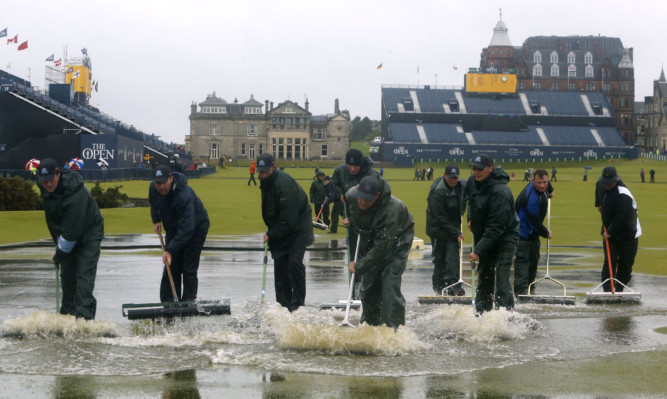The National Farmers Union of Scotland has warned there could be a “significant effect” on this year’s harvest unless the weather improves.
The east of Scotland has endured a miserable summer, with some parts of the country, including Perth and Dundee, experiencing twice as much rainfall as usual.
The sodden conditions have played havoc with events ranging from music festivals like T in the Park and Rewindto sporting events such as the Open at St Andrews.
Alyth also suffered extreme flooding as a result of a deluge last month.
The NFUS has warned this year’sharvest could be adversely impacted unless the weather improves and has said some parts of the countryare already experiencing shortages of certain cereals.
A spokeswoman said: “AcrossScotland the adverse weather isaffecting farming in general, and will, particularly if we don’t get consistently dry weather in the coming weeks, havea significant effect on harvest in some areas.
“For example, in Orkney there is asignificant shortage of hay and barley at present, with farmers struggling.
“In the Perthshire and Fife areas farmers don’t seem to have been as badly hit, albeit there will be some cases where lower-quality land may have been affected by the rainfall.”
In Caithness, the heavy rains have delayed silage work by around a month.
Some livestock farmers have had to keep their cattle indoors while others have had to sell their livestock earlier than usual to make more room on their farms, meaning animals are being sold at market at lighter weights.
Fred Richards, manager of pea and broad bean producers East Coast Viners, said the situation is “not at the crisis stage” but that if the weather does not improve it would eventually have an effect on crops.
He said: “So far things (the crop) have been good but August will have to improve.
“If August gets to a reasonableaverage, we will be happy.”
A Met Office spokeswoman said the wet summer was largely down to the Atlantic jet stream being further south than normal this year.
“That has allowed cooler air from the north to drop down,” she said.
In 2012 the UK suffered its wettest summer in a century, which caused wheat yields to drop by around 15%.
This, coupled with extreme droughts in the UK and Russia, pushed up the global prices of wheat.
This has a knock-on effect on livestock farmers, who must pay more for the feed for their animals, all of which led to rises in food prices.
Rural Affairs Secretary RichardLochhead has said the ScottishGovernment is liaising with the NFUS and the Scottish Crofting Federation over problems caused by the wetsummer.
